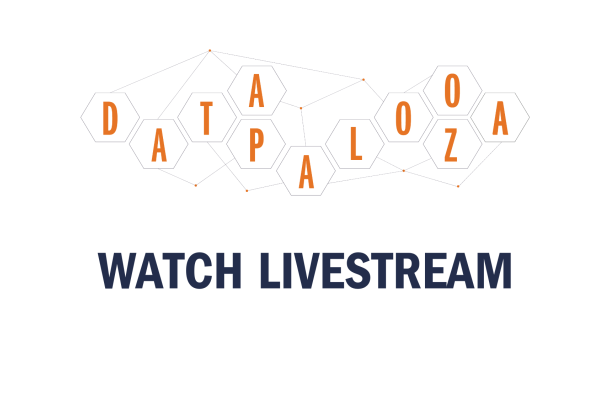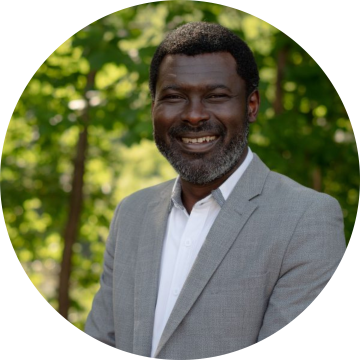
Prince Afriyie
Associate Professor of Data Science, Program Director MSDS Residential, University of Virginia
Afriyie is an associate professor of data science at the University of Virginia where he also serves as program director of the M.S. in data science residential program. Afriyie’s educational background is in mathematics and statistics. He currently serves on the Statistics Review Committee for the Centers for Disease Control and Prevention journal, Preventing Chronic Diseases, where he helps to advance understanding and dissemination of statistical methods and testing in the public health field. Prior to joining the School of Data Science, he was an assistant professor of statistics at UVA where he taught courses in introduction to data science with R, statistical analysis with Python, and mathematical statistics. Afriyie’s research includes multiple comparisons, survival analysis, as well as statistics and data science education. His research in multiple comparisons is focused on developing new and powerful methodologies when testing multiple hypotheses simultaneously.
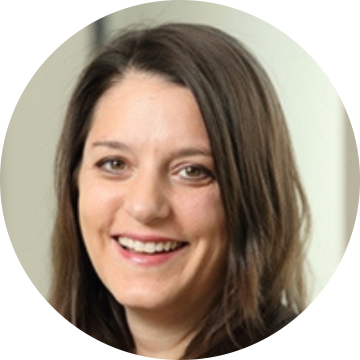
Laura Barnes
Professor of Systems and Information Engineering, University of Virginia
Barnes is a professor in the Department of Systems and Information Engineering. She is the associate director of Link Lab and directs the Sensing Systems for Health Lab, which focuses on designing impactful, technology-enabled solutions for improving health and well-being. She received her Ph.D. degree in computer science from the University of South Florida. Barnes’ work has been funded by the National Institutes of Health, National Institute of Aerospace, U.S. Army, and private foundations. Her research interests include autonomy and controls/control systems, wireless health, human machine interface, biomedical data sciences, and machine learning.

Bill Basener
Professor of Data Science, University of Virginia
Basener is a professor at the School of Data Science with a joint appointment in the Department of Systems and Information Engineering. He has authored research publications in machine learning, signal processing, image processing, dynamical systems, game theory, ecological economics, evolutionary genetics, and other applied mathematical fields, as well as a textbook on applied topology and multiple patents. The methods and software he developed for processing images in hyperspectral imaging have become the gold standard in the field, used for processing millions of images by dozens of organizations. The Basener-Ross model he developed for modeling ecological collapse has been used for studying ancient civilizations. He invented the topological anomaly detection, gradient flow clustering, hierarchical material identification, and object-based identification algorithms in image processing. This technology has been used in disaster relief efforts across the world. Prior to joining the School of Data Science, Basener was an emeritus professor at the Rochester Institute of Technology of Mathematical Sciences. He is also the founder and president of two data analytics software companies.

Ian Baucom
Executive Vice President and Provost, University of Virginia
Baucom is the executive vice president and provost of the University of Virginia. As the chief academic officer, he oversees the University’s teaching and research activities and directs the academic administration of the schools, the library, art museums, public service activities, numerous University centers, and foreign study programs. Before becoming provost, Baucom served for eight years as the Buckner W. Clay Dean of the College and Graduate School of Arts & Sciences at the University. Baucom came to UVA after serving 17 years in Duke University’s Department of English as a professor and as the director of the John Hope Franklin Humanities Institute. Under his leadership, Arts & Sciences launched its new College Curriculum to better prepare undergraduate students for 21st-century lives through a reimagined first-year student experience. He advanced the Arts & Sciences research mission and strengthened graduate programs; under his guidance, significant investments have been made in the Graduate School to help draw the most talented graduate students and researchers to UVA.
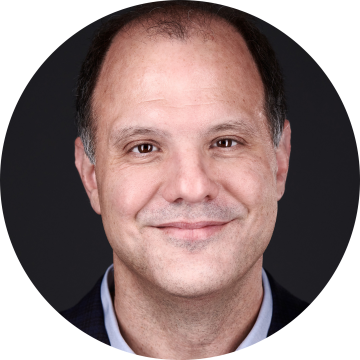
Jeffrey Blume
Associate Dean for Academic and Faculty Affairs in Data Science
Blume is a data scientist, administrator, and biostatistician, with vast experience building and leading academic programs. Most recently, Blume served as director of graduate education at Vanderbilt’s Data Science Institute and vice chair of education in the Department of Biostatistics and was a tenured professor of biostatistics, with secondary appointments in biomedical informatics and biochemistry at Vanderbilt. His areas of research and collaboration include radiology, cancer diagnosis and prediction, nephrology, translational biomedicine, fMRI, and women’s health. His published research is on a wide variety of topics, including evidential philosophy of statistical inference, likelihood methods, second-generation p-values, prediction modeling, mediation modeling, ROC curves, sequential testing, trial design, empirical Bayes methods for biomedical data, false discovery rates, model selection, and neuroimaging. Blume holds a Ph.D. in biostatistics from Johns Hopkins University and a B.A. in Statistics from the State University of New York at Buffalo.

Phil Bourne
Stephenson Dean, School of Data Science, University of Virginia
Bourne is the founding dean of the School of Data Science, the newest and 12th school to be formed in the University’s 200-year history. He is a world-renowned biomedical and data science researcher who has published over 350 papers and five books, launched four companies, received numerous awards, and been elected as a fellow to multiple scientific societies. He was the first associate vice chancellor for innovation and industrial alliances at the University of California San Diego and the first associate director for data science at the National Institutes of Health. As dean of the School of Data Science, Bourne is leading an effort to create a new kind of school — a school “without walls,” defined by interdisciplinary collaboration and open scholarship. The School is guided by common goals: to further discovery; share knowledge; and make a positive impact on society through collaborative, open, and responsible data science research and education. Founded in 2019, the School of Data Science is positioned to play an integral leadership role in the global digital future.
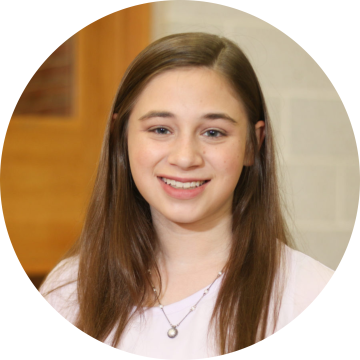
Gabrielle Bray
Fellow, Office of the Executive Vice President & Chief Operating Officer, University of Virginia
Bray graduated from the University of Virginia in 2023 where she majored in history and Jewish studies. During her third year, she served as Chair of the Honor Committee and was instrumental in overseeing progress towards a constitutional redesign. Bray also organized the Honor Constitutional Convention fall semester — a planned meeting of 30 delegates from CIOs across Grounds that gathered to discuss and propose changes to the constitution. A native of Memphis, Tennessee, she hopes to attend law school and is currently serving as a Fellow with the Office of the UVA Executive Vice President & Chief Operating Officer.

Farhana Faruqe
Assistant Professor of Data Science, University of Virginia
Farhana Faruqe is a data scientist, researcher, and entrepreneur; her research focuses on trustworthy AI, human-centered design, and AI acceptance. She is active in the Trustworthy AI community. Farhana is a founding editorial board member for the AI and Ethics Journal (Springer), actively shaping ethical discourse within the AI domain. Recognizing the need for equity within the tech realm, she has founded AI4Equity, a nonprofit initiative that empowers young women to elevate their AI knowledge and skills. Before joining the University of Virginia, Farhana had a cumulative professional journey spanning over 12 years across diverse industries and academia. She holds an interdisciplinary Ph.D. in Human-Technology Collaboration concentration, an M.S. in data science from George Washington University, and a B.S. in computer science and Engineering from BRAC University.
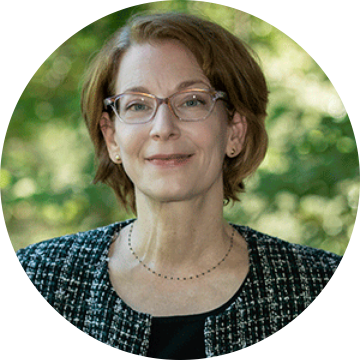
Brie Gertler
Vice Provost for Academic Affairs and Professor of Philosophy, University of Virginia
Gertler is vice provost for academic affairs and Commonwealth Professor of Philosophy. The vice provost for academic affairs serves as a second-in-command for the provost and provides leadership and oversight of the core academic functions of the University. Specific responsibilities include academic program review; oversight of academic enhancement programs for undergraduate, graduate, and professional students; University-wide advising and support; and all aspects of state and federal academic compliance, including accreditation by the Southern Association of College and Schools. In this broadly collaborative role, she works with executive and school leadership, the Faculty Senate, and Student Affairs in advancing institutional objectives, including those identified in the University's strategic plan. Gertler joined the provost’s office in July 2021. Her past appointments include acting dean of the University's College and Graduate School of Arts & Sciences, interim associate dean for the College, and chair of the Philosophy Department. Before coming to the University of Virginia in 2004, she was an associate professor at the University of Wisconsin–Madison. Prior to that she was an assistant professor at the College of William & Mary.
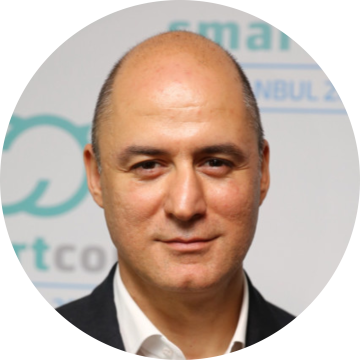
Hamit Hamutcu
Senior Advisor, Institute for Experiential AI at Northeastern University
Hamutcu co-founded Elements, a Boston-based data skills assessment platform. Since 2021, he has also served as a senior advisor at Northeastern University’s Institute for Experiential AI. Additionally, Hamutcu co-founded the Initiative for Analytics and Data Science Standards, which set out to create industry standards for data science professionals through a collaborative process with various stakeholders. Earlier in his career he served as a managing partner with the Peppers & Rogers Group, where he led the development of analytics service offerings, and spent four years at FedEx, including as internet strategy manager from 1998 to 2000. Hamutcu received an MBA from the University of Florida and a bachelor’s degree in electoral and electronics engineering from Boğaziçi University.
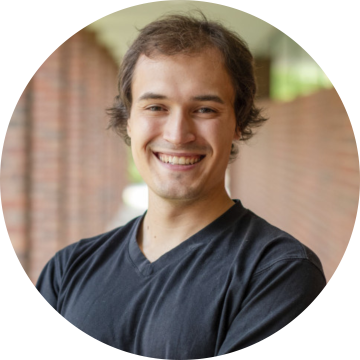
Tom Hartvigsen
Assistant Professor of Data Science, University of Virginia
Hartvigsen is an assistant professor of data science at the University of Virginia. He works to make machine learning trustworthy, robust, and socially responsible enough for deployment in high-stakes, dynamic settings. His research has been published at many major peer-reviewed venues in machine learning, natural language processing, and data mining. He is active in the machine learning community, serving as the general chair for the Machine Learning for Health Symposium in 2023, helping organize the 2023 Conference on Health, Informatics, and Learning, and co-chairing workshops on time series and generative AI at NeurIPS'22 and ICML'23. Prior to joining UVA, Hartvigsen was a postdoctoral associate at MIT's Computer Science and Artificial Intelligence Laboratory. He holds a Ph.D. and M.S. in data science from Worcester Polytechnic Institute and a B.A. in applied math from SUNY Geneseo.

Mar Hicks
Associate Professor of Data Science, University of Virginia
Hicks does research on the history of computing, labor, technology, and queer science and technology studies. Their work studies how collective understandings of progress are defined by competing discourses of social value and economic productivity, and how technologies often hide regressive ideals while espousing "revolutionary" or "disruptive" goals. Their research investigates everything from how power and AI intersect, to the long history of transphobic algorithmic bias, to the connections between gender and technological change. Hicks’ current work focuses on how gender and sexuality bring hidden technological dynamics to light, and how the experiences of women and LGBTQIA people change the core narratives of the history of computing in unexpected ways. Hicks's multiple award-winning first book, "Programmed Inequality," looks at how the British lost their early lead in computing by discarding women computer workers, and what this cautionary tale can tell us about current issues in high tech. Before joining UVA, Hicks was associate professor of history of technology at Illinois Institute of Technology in Chicago. Hicks holds a Ph.D. and M.A. from Duke University in history, and a B.A. in history from Harvard.

Yangfeng Ji
Assistant Professor of Computer Science, University of Virginia
Ji joined the Department of Computer Science at the University of Virginia in 2018. He leads the Information and Language Processing lab. He received his Ph.D. from the Georgia Institute of Technology in 2016. From 2016 to 2018, he was a postdoctoral researcher at the University of Washington’s Paul G. Allen School of Computer Science & Engineering. His research interests include natural language processing and machine learning. Among his accolades, he received the Amazon Research Award in 2022, the UVA Engineering Innovation Award in 2019, and the NAACL Outstanding Paper Award in 2018.

Terence Johnson
Assistant Professor of Data Science, University of Virginia
Johnson is an economist specializing in market design and development economics, using machine learning and other tools to design or improve the performance of markets. He joined the School of Data Science as an assistant professor in 2022. Johnson studies how the structure of markets shapes inefficiencies that hamper economic performance, particularly in developing countries. He uses tools from game theory, mechanism design, and machine learning to measure the impact of market failures, and then designs and tests new solutions. His projects have ranged from reducing monopoly power in the market for sanitation through auctions in Senegal to empowering female entrepreneurs through mentorship and grants in Kenya to measuring the cost of corruption in public procurement in Tanzania. Johnson’s projects have been funded by the Bill and Melinda Gates Foundation and the Jameel Abdul Latif Poverty Action Lab.

Jon Kropko
Associate Professor of Data Science, Program Director MSDS Online, University of Virginia
Kropko’s research interests include civic technology, remote environmental sensing, survival and time series analysis, and missing data imputation. With a background in math and political science, throughout his career Kropko has sought to apply his quantitative skills to make an impact in the real world. At the School of Data Science, Kropko teaches courses on the practice and application of data science and advises students in their capstone projects. Kropko also leads Code for Charlottesville, the local chapter of Code for America. Volunteers come together every other week to participate in civic hack nights to collaborate, code, and work on projects with a variety of local organizations and nonprofits, including the Legal Aid Justice Center, Charlottesville Fire Department, Housing Navigation, the Charlottesville City Street Light Network, and more. Prior to joining the School of Data Science in 2019, Kropko taught as an assistant professor in the Department of Politics at UVA for six years.

Heidi Lanford
Former Chief Data Officer, Fitch Group
Lanford most recently served as the chief data officer at Fitch Group, one of the big three credit ratings agencies. In this role, she was responsible for Fitch’s data across all divisions and products. She also led their digital transformation to harness data in order to provide next-generation tools for clients. She joined Fitch from Red Hat (IBM), where she was vice president of enterprise data and analytics, leading strategy and execution across analytics, business intelligence, data science, AI/ML, data literacy education, data architecture, and governance. She previously held executive-level positions with Avaya and WPP. She was an advisor for HearstLab, which provides investment and services to early-stage, women-led technology startups. She serves on the advisory board for the University of Virginia’s School of Data Science, the editorial board for CDO Magazine, and is a founding board member for Tableau’s Data Leadership Collaborative, which connects like-minded leaders who are building data-driven organizations.

Sarah Lebovitz
Assistant Professor of Commerce, University of Virginia
Lebovitz has expertise in information systems and technological transformation. Her research focuses on how new technologies impact organizational processes and professionals' work practices. She uses field research and in-depth qualitative methods to study how these changes are occurring in practice today and to understand their impacts. Lebovitz joined the University of Virginia’s McIntire School of Commerce in 2020 and teaches the Integrated Core Systems and Strategy course and Data Visualization course at the undergraduate level. Lebovitz's work has appeared in high-quality outlets, including Academy of Management Journal; Organization Science; Management Information Systems Quarterly; Information Systems Journal; and Sloan Management Review, as well as at national conferences and university research workshops. Before earning her Ph.D., Lebovitz worked as a forensics technology consultant at PricewaterhouseCoopers and as a process analyst at The J. M. Smucker Company. She also conducted innovation projects at IBM Research.
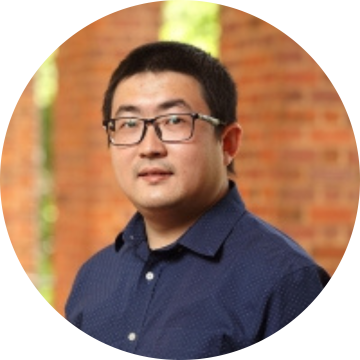
Jundong Li
Assistant Professor of Electrical and Computer Engineering and Data Science, University of Virginia
Li is an Assistant Professor at the University of Virginia with appointments in Department of Electrical and Computer Engineering, Department of Computer Science, and School of Data Science. Prior to joining UVA, he received his Ph.D. degree in computer science at Arizona State University in 2019, M.Sc. degree in computer science at University of Alberta in 2014, and B.Eng. degree in software engineering at Zhejiang University in 2012. His research interests are generally in data mining and machine learning, with a particular focus on graph mining/graph machine learning, causal inference, and trustworthy AI, and more recently on large language models. As a result of his research work, he has published over 140 papers in high-impact venues (including KDD, NeruIPS, IJCAI, AAAI, WWW, WSDM, SIGIR, EMNLP, CIKM, ICDM, SDM, ECML-PKDD, CSUR, TPAMI, TKDE, TKDD, TIST, etc), with over 9,600 citation count. He has won several prestigious awards, including SIGKDD Best Research Paper Award (2022), NSF CAREER Award (2022), PAKDD Early Career Research Award (2023), JP Morgan Chase Faculty Research Award (2021 & 2022), Cisco Faculty Research Award (2021), and being selected for the AAAI New Faculty Highlights roster (2021). His group's research is generously supported by NSF (CAREER, III, SaTC, SAI), DOE, Commonwealth Cyber Initiative, Jefferson Lab, JP Morgan, and Cisco.

Sheng Li
Associate Professor of Data Science, University of Virginia
Li is an Associate Professor of Data Science at the University of Virginia. He received his Ph.D. degree in computer engineering from Northeastern University in 2017. His recent research interests include trustworthy representation learning, graph neural networks, visual intelligence, and causal inference. He has published over 150 papers, and has received over 10 research awards, such as the INNS Aharon Katzir Young Investigator Award, Fred C. Davidson Early Career Scholar Award, Adobe Data Science Research Award, Cisco Faculty Research Award, and SDM Best Paper Award. He has served as associate editor for seven journals such as IEEE Trans. Neural Networks and Learning Systems (TNNLS) and IEEE Trans. Circuits and Systems for Video Technology (TCSVT), and has served as an Area Chair for IJCAI, NeurIPS, ICML, and ICLR.

Michael Luegering
Assistant Professor of Landscape Architecture, University of Virginia
Luegering is principal at LVA Architects. He is a licensed landscape architect in the state of New York working on a variety of design projects and research work. He received a bachelor’s degree in urban planning from the University of Cincinnati. He earned a master’s degree in landscape architecture with distinction from Harvard’s Graduate School of Design, where he was awarded the Thesis Prize in Landscape Architecture for his thesis Vernacular Pasture Lands | The Rural Design Almanac. Michael’s design perspective is framed by his study of landscape architecture, urban design, and urban planning, as well as his extensive research in the vernacular of the American pasture and his Kentucky upbringing. He recently taught at the University of Pennsylvania in the area of landscape architecture media and visualization, and has contributed to Penn Praxis work on Resilient by Design. His past work at Penn includes working on the 2020 ASLA award-winning coastal resiliency mapping project, "Fantasy Island: The Galapagos Archipelago."

Larry Medsker
Research Professor, George Washington University
Medsker is a research professor of physics at George Washington University. He has previously served as the dean of the School of Science at Siena College as well as an associate dean at American University. His areas of expertise include physics education research, experimental nuclear physics, as well as AI and neural computing. Medsker holds a Ph.D. in physics from Indiana University.
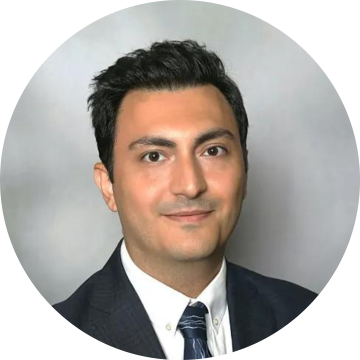
Reza Mousavi
Assistant Professor of Commerce, University of Virginia
Mousavi has expertise in artificial intelligence and business analytics. His research topics are related to the societal impacts and economics of social media, AI and business analytics, user-generated content, and health care information systems. He uses machine learning, deep learning, and natural language processing, along with econometrics, to identify quasi-experimental settings and study the underlying relationships among the constructs of interest. Mousavi’s work has appeared in Information Systems Research, Journal of Management Information Systems, and Journal of the Association for Information Systems. His work has been presented at international and national conferences such as CIST, WITS, WISE, ICIS, HICSS, and AMCIS. Mousavi has taught advanced AI and business analytics, research methods, computer programming, and project management at the undergraduate, graduate, and doctorate levels. Mousavi has worked with leading consulting firms on a variety of data science projects. He was also lead data scientist at State Farm Insurance Co. before joining academia.

Dirk Peterson
Vice President & Client Managing Director, North America Program, Insight222
Dirk has been with Insight222 since it was founded in 2017, having been part of the initial group of people that brought the idea and concept of “putting people analytics at the centre of business” to life. He has over 30 years of business experience, many in management and executive roles in organisations such as the German Government, CEB (now Gartner) and the WorldBank. Dirk grew up in Germany before moving to complete his education in the USA – at Harvard Business School. He now lives in Charlottesville, VA. Dirk leads the Insight222 People Analytics Program® in North America, and in his spare time plays competitive squash – at which, he is somewhat of an expert!
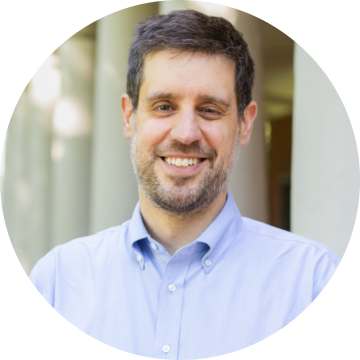
Andy Pennock
Associate Professor of Public Policy, University of Virginia
Pennock is an associate professor of public policy at the Frank Batten School of Leadership and Public Policy, teaching courses in leadership, policy analysis, political institutions, and Virginia politics and policy. During his time at Batten, Pennock has engaged and built relationships with state policymakers in Richmond, increasing Batten’s influence on policy development and implementation in Virginia and providing students with experiential learning and career opportunities. In 2018, he launched one of Batten’s first policy clinics, leading to 10 students staffing the transition teams for incoming Governor Ralph Northam. Pennock’s academic research examines public policy in the global economy as well as the scholarship of teaching and learning. His 2019 book with CQ Press won a Textbook Excellence Award from the Textbook and Academic Authors Association and is used in professional schools across the nation.
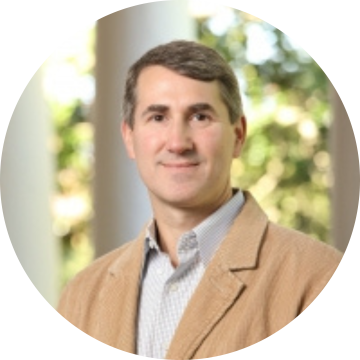
Michael D. Porter
Associate Professor of Systems Engineering and Data Science, University of Virginia
Porter's research focuses on event prediction, pattern and anomaly detection, and data linkage. He has developed self-exciting point process models for processes where the occurrence of certain events can trigger a cascade of subsequent events. These models have been applied to crime, terrorism, social media, and crash data and led to a winning performance in NIJ's Real-time Crime Forecasting Challenge. Porter has also developed methodology and software for crime linkage, a type of data linkage problem where the goal is to group together unsolved crimes that were committed by the same offender(s) using the behavioral patterns obtained from crime data. Prior to joining UVA in 2018, Porter was an associate professor of applied statistics at the University of Alabama. He also has industry experience as principal research scientist at DigitalGlobe/GeoEye/Spadac and project engineer at Sanford/Newell Brands.

Jade Preston
Doctoral Candidate in Data Science, University of Virginia
Preston is a doctoral candidate in data science at the University of Virginia, sponsored by the U.S. Air Force where she is an active-duty operations research analyst. She chose to pursue data science because it is a natural touch point between the analytic and cyber career fields by applying both mathematical and computer science concepts. She has worked with her faculty advisor, Bill Basener, a professor of data science at UVA, on a project that employs remote sensing and hyperspectral image classification to examine food security, using NASA satellite imagery.
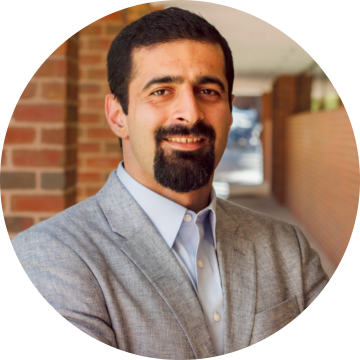
Heman Shakeri
Assistant Professor of Data Science, University of Virginia
Shakeri is an assistant professor at the School of Data Science. He is also an assistant professor by courtesy in the Department of Biomedical Engineering. His research interests include algorithm development in machine learning and network science, computational statistics, and data-driven identification and control of high-dimensional dynamical systems. Prior to joining UVA in 2019, Shakeri worked as a postdoctoral associate at the Institute of Computational Comparative Medicine at Kansas State University. There, he conducted research on the statistical analysis of the structure and function of complex interconnected networks in natural and technological contexts, analyzed multi-drug resistance networks and their evolutions, and developed methodologies in statistical learning, data analysis, and sampling. Shakeri holds a Ph.D. in electrical and computer engineering from Kansas State University.

Scott Stephenson
Founder of SGS Capital and former Chairman, President and CEO of Verisk Analytics
Stephenson is the founder of SGS Capital and former chairman, president and CEO of Verisk Analytics. He serves on several for-profit and not-for-profit boards, including PSEG (NYSE), Definitive Healthcare (NASDAQ), The Bowery Mission (chair), Yale Center for Faith and Culture, the Human Flourishing Program at Harvard, and the University of Virginia’s School of Data Science. He also serves as an advisory partner with the global private equity firm Advent International. Stephenson is a signatory of the Business Roundtable’s statement on The Purpose of a Corporation. During his tenure as CEO of Verisk Analytics, Forbes recognized Stephenson as one of America’s Most Innovative Leaders and as one of the Top 25 Most Innovative Leaders Worldwide. Along with his wife, Beth, he established The Stephenson Dean of Data Science at UVA. He has an MBA from Harvard Business School and a bachelor’s degree in mechanical engineering from UVA.

Tom Stewart
Associate Professor of Data Science, Program Director Ph.D. in Data Science, University of Virginia
Stewart is a data scientist specializing in biostatistics, clinical trials, and clinical research education. He serves as program director of the Ph.D. program at the University of Virginia's School of Data Science. Prior to coming to UVA as an associate professor, Stewart was faculty at the Vanderbilt University Medical Center where he taught in the Data Science Institute, the Clinical Investigation program, and the Public Health program. At the national level, Stewart served as a founding board member for Biostats4You, a continuously curated website of educational materials sponsored by the Biostatistics, Epidemiology and Research Design Special Interest Group of the Association for Clinical and Translational Science. In 2022, he was elected to the Academy for Excellence in Education. Stewart is a highly collaborative data scientist, including past collaborations with ACHQC, VCKD, and VICTR. He was an organizer of useR! 2022, the international conference for statistical computing and graphics with the R software.
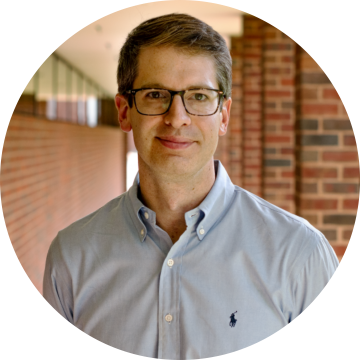
Brian Wright
Associate Professor of Data Science, Program Director B.S. in Data Science, University of Virginia
Wright serves as assistant professor and director of undergraduate programs at the University of Virginia’s School of Data Science. He is also the School of Data Science director for the School’s first collaboratory with the UVA School of Education. The Collaboratory for the Advancement of Data Science and Education was launched in 2019 with research hubs on economic mobility, replication studies, and education technology implementation. Prior to joining UVA in 2019, Wright developed the master’s of data science program at George Washington University where he taught for four years. While at GW, he founded their Data Science Institute and helped develop the creation of a joint Ph.D. in education and data science. Wright began his career with the Department of Defense as a management consultant and researcher with a focus on enterprise resource planning conversion.

Aidong Zhang
Professor of Computer Science, Biomedical Engineering, and Data Science, University of Virginia
Zhang is the Thomas M. Linville Professor of Computer Science at the University of Virginia, with joint appointments in the Department of Biomedical Engineering and the School of Data Science. Her research focuses on machine learning, data mining, bioinformatics, and health informatics. Zhang is the author of more than 390 research publications in these fields. In 2021, Zhang became a fellow at the American Institute for Medical and Biological Engineering. She is also a fellow at the Association for Computing Machinery and at IEEE. In 1998, Zhang received the National Science Foundation Career Award. She received her Ph.D. in computer science from Purdue University.
